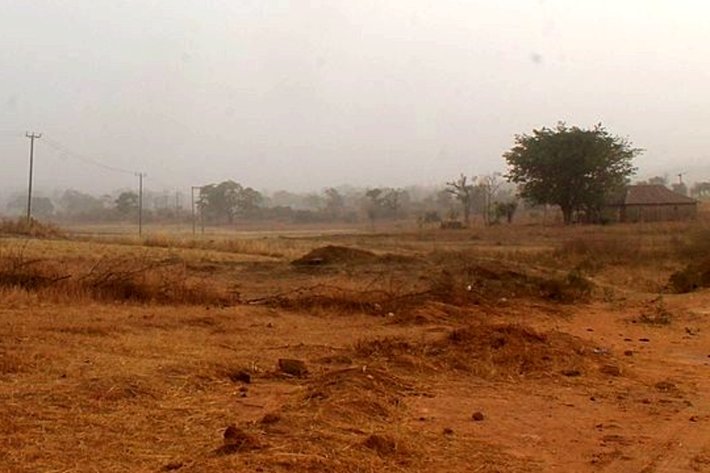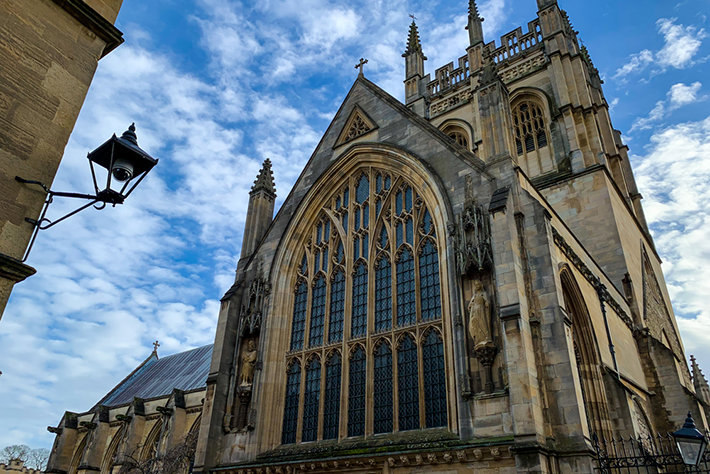Across the United States, religious groups are adding their voices to calls for action against climate change, stressing the urgent need to boldly defend what they see as God’s creation.

In Summer 2021, more than 3,000 faith leaders called on U.S. Congress to back a clean energy standard for the country, expand electric transportation and ensure public access to clean water.
In a June 15 petition organized by Interfaith Power & Light, a nonprofit that describes itself as “a national leader in engaging faith communities in environmental stewardship and climate action,” faith leaders warned that it is “the moral responsibility of our nation, and our sacred task as people of faith, to protect our ecosystems, work for environmental justice and public health, and address the climate crisis.”
Just six days earlier, a group of pastors, rabbis and other religious leaders gathered on the steps of the U.S. Capitol to express their support for the President’s infrastructure plan aimed at establishing a clean energy standard by 2035.
The “100 Leaders for 100% Clean Energy” campaign was organized by Interfaith Power & Light; Dayenu: A Jewish Call to Climate Action; the Hip Hop Caucus; and Chesapeake Climate Action Network Action Fund.
“Proverbs 29:18 says, ‘Without a vision, the people perish,’” Rev. Susan Hendershot, president of Interfaith Power & Light, told National Catholic Reporter. “Without action to bring that vision to life, all that we hold most precious and sacred will perish.”
Rabbi David Shneyer and Presbyterian Mike Tidwell wrote in a Washington Post op-ed that as activists they “approach climate change from many angles” but they “see it first as a moral issue... faith traditions teach us that the Earth is a sacred gift and that human communities are only whole when no one is left behind.” Rampant climate change “mocks these moral precepts.”
Faith-based climate activism is not new. In 2009, for example, the Center for American Progress, a Washington, D.C.-based public policy research and advocacy organization, published a column detailing how faith leaders testified in Congress on climate change issues while focusing on projects such as building energy-efficient churches, “biking to church” initiatives, eco-friendly green Iftar meals during Ramadan, and “lo-watt Shabbat,” to conserve energy during the sabbath.
Some 1,200 institutions—a third of them faith-based—have committed to divest a total of $14.5 trillion from fossil-fuel industries, according to a March 2021 article in Nature.
Recently, in what was billed as the largest global divestment of its kind, 73 religious organizations announced they would divest more than $4.2 billion in combined fossil fuel industry assets in 10 countries.
The announcement came close on the heels of a call by Pope Francis and other faith leaders to governments around the world to tackle the “unprecedented ecological crisis.” The pontiff and his fellow faith leaders issued the appeal before the United Nations Climate Change Conference in Glasgow, Scotland.
Public opinion about climate change among believers points firmly in the direction of urgent action. A Politico/Morning Consult poll conducted in April 2021 reveals that 60 percent of Christians and 79 percent of non-Christians (including Jews, Muslims, Buddhists and Hindus) believe that “passing a bill to address climate change and its effects” should be a priority for Congress.
From its beginnings, the Church of Scientology has recognized that freedom of religion is a fundamental human right. In a world where conflicts are often traceable to intolerance of others’ religious beliefs and practices, the Church has, for more than 50 years, made the preservation of religious liberty an overriding concern.
The Church publishes this blog to help create a better understanding of the freedom of religion and belief and provide news on religious freedom and issues affecting this freedom around the world.
The Founder of the Scientology religion is L. Ron Hubbard and Mr. David Miscavige is the religion’s ecclesiastical leader.
For more information visit the Scientology website or Scientology Network.


